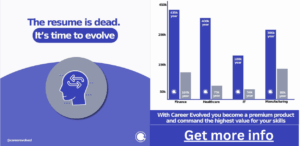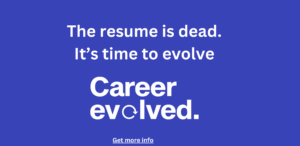25 Things to Do When Planning for an Executive Career Upgrade
1. Self-Assessment and Goal Setting
Begin by evaluating your current career status and defining clear, achievable goals for your career upgrade.
2. Update Your Resume and LinkedIn Profile
Ensure your resume and LinkedIn profile are updated with your latest achievements, skills, and experiences. Highlight executive-level responsibilities and accomplishments.
3. Enhance Your Skills and Knowledge
Identify and acquire new skills that are relevant to the executive roles you aspire to. This could include advanced leadership courses, industry-specific certifications, or management training.
4. Network Strategically
Expand your professional network by attending industry events, joining executive groups, and connecting with influential leaders in your field.
5. Seek a Mentor
Find a mentor who has successfully navigated the executive career path. Their guidance can provide valuable insights and advice.
6. Build a Personal Brand
Develop a strong personal brand that reflects your expertise and leadership qualities. This can be achieved through thought leadership, speaking engagements, and content creation.
7. Get a Professional Coach
Consider hiring a career coach who specializes in executive transitions. They can provide personalized advice and support throughout your journey.
8. Conduct Market Research
Understand the current trends and demands in your industry. This knowledge will help you tailor your approach and make informed decisions.
9. Set a Timeline
Create a realistic timeline for your career upgrade, outlining key milestones and deadlines to keep you on track.
10. Improve Communication Skills
Refine your communication skills, both written and verbal. Effective communication is crucial for executive roles.
11. Gain Cross-Functional Experience
Diversify your experience by taking on projects or roles in different departments. This broadens your understanding of the business and demonstrates versatility.
12. Strengthen Your Emotional Intelligence
Develop your emotional intelligence to better manage relationships, resolve conflicts, and lead teams effectively.
13. Demonstrate Leadership
Take initiative in your current role to demonstrate your leadership capabilities. Lead projects, mentor colleagues, and contribute to organizational success.
14. Prepare for Executive Interviews
Practice answering executive-level interview questions and develop a compelling narrative about your career progression and leadership philosophy.
15. Leverage Social Media
Use social media platforms to share industry insights, participate in discussions, and showcase your expertise.
16. Enhance Decision-Making Skills
Focus on improving your decision-making abilities. Executives are expected to make strategic decisions that impact the entire organization.
17. Align with Company Goals
Ensure your career goals align with the strategic objectives of your target companies. This alignment increases your attractiveness as a candidate.
18. Develop a Strategic Vision
Articulate a clear strategic vision for your potential role. Companies seek leaders who can drive long-term growth and innovation.
19. Manage Your Online Reputation
Monitor and manage your online presence to ensure it reflects your professional image. Address any negative content or misconceptions promptly.
20. Invest in Continuous Learning
Stay updated with the latest industry trends, technologies, and best practices through continuous learning and development.
21. Volunteer for Leadership Roles
Volunteer for leadership roles in professional associations, community organizations, or non-profits to gain additional experience and visibility.
22. Understand Financial Metrics
Develop a strong understanding of financial metrics and how they impact business decisions. This knowledge is crucial for executive roles.
23. Focus on Results
Highlight your track record of delivering results in previous roles. Executives are expected to drive performance and achieve tangible outcomes.
24. Seek Feedback
Regularly seek feedback from peers, mentors, and supervisors to identify areas for improvement and refine your approach.
25. Stay Persistent and Positive
The journey to an executive role can be challenging. Stay persistent, maintain a positive attitude, and remain committed to your goals.
Difference Between an Executive Coach and a Career Coach
Understanding the differences between an executive coach and a career coach can help you choose the right support for your professional development. Here are the key distinctions:
Executive Coach
Focus:
- Leadership Development: Executive coaches primarily focus on enhancing leadership skills and effectiveness. They help clients navigate complex organizational dynamics and develop strategic thinking.
- Performance Improvement: They work with clients to improve their performance in their current executive roles, addressing specific challenges and enhancing overall effectiveness.
- Organizational Impact: The coaching often includes strategies to influence organizational culture, drive change, and achieve corporate goals.
Clientele:
- Executives and Senior Leaders: Executive coaches typically work with C-suite executives, senior leaders, and high-potential managers on a leadership track.
- High Stakes: The clients are often in high-stakes positions where decisions can significantly impact the organization.
Approach:
- Customized Strategies: They use tailored approaches to address individual and organizational needs, including 360-degree feedback, leadership assessments, and one-on-one sessions.
- Long-Term Engagements: The coaching relationship often spans several months to years, focusing on sustained leadership development and impact.
Topics Covered:
- Leadership styles and effectiveness
- Strategic decision-making
- Communication and influence
- Managing organizational change
- Emotional intelligence and resilience
Career Coach
Focus:
- Career Planning: Career coaches help clients identify career goals, develop career plans, and navigate career transitions.
- Job Search Strategies: They provide support with job search techniques, resume writing, interview preparation, and networking strategies.
- Skill Development: They assist clients in identifying and developing skills needed for career advancement or transition.
Clientele:
- Professionals at All Levels: Career coaches work with a broad range of clients, from entry-level professionals to mid-career individuals and those seeking to switch careers.
- Career Transitions: Their clients often seek guidance on changing careers, re-entering the workforce, or achieving specific career milestones.
Approach:
- Goal-Oriented: Career coaching is often shorter-term and goal-oriented, focusing on specific career objectives.
- Action Plans: They create action plans with clear, actionable steps to help clients achieve their career goals.
Topics Covered:
- Career assessment and exploration
- Resume and LinkedIn profile optimization
- Job search tactics and networking
- Interview preparation and salary negotiation
- Work-life balance and career satisfaction
Summary
Executive Coach:
- Focuses on leadership development and performance improvement
- Works with executives and senior leaders
- Addresses organizational impact and long-term growth
- Customized and long-term engagements
Career Coach:
- Focuses on career planning and job search strategies
- Works with professionals at all levels
- Helps with career transitions and specific career milestones
- Goal-oriented and short-term engagements








